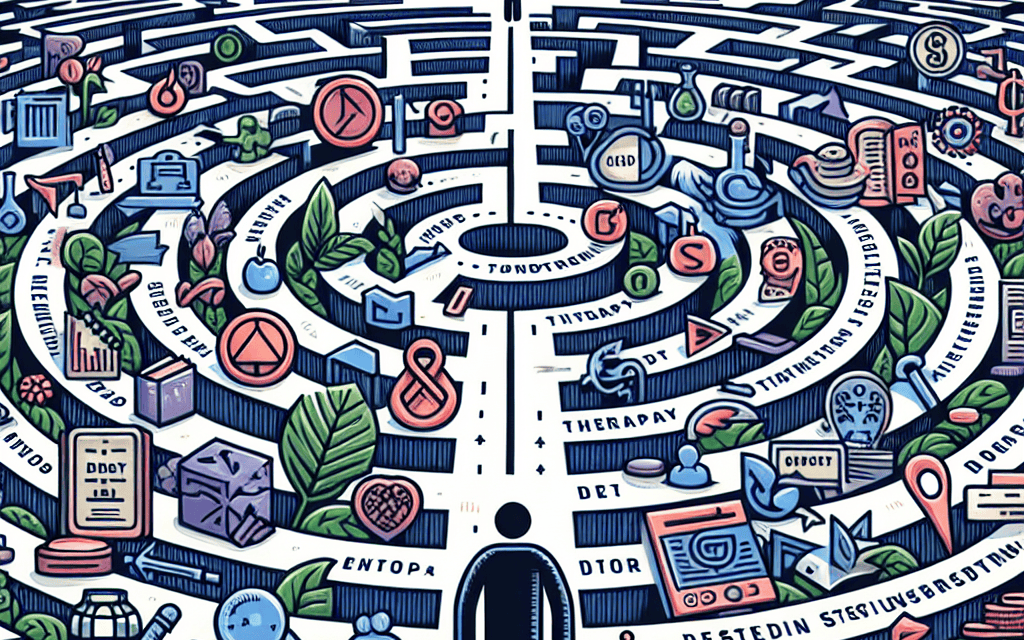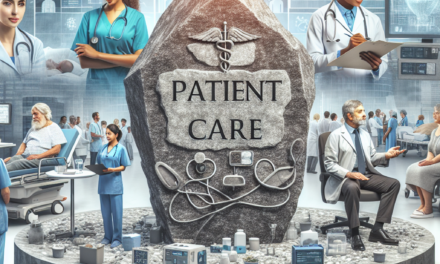Selecting the Ideal Addiction Treatment Program for Your Unique Needs
Addiction is a complex and multifaceted issue that affects millions of individuals and their families worldwide. The journey to recovery is often challenging, and selecting the right treatment program is crucial for achieving long-term sobriety. With various options available, it can be overwhelming to determine which program best suits your unique needs. This article aims to provide a comprehensive guide to help you navigate the process of selecting an ideal addiction treatment program.
Understanding Addiction: The First Step Towards Recovery
Before diving into the specifics of treatment programs, it is essential to understand what addiction is and how it manifests. Addiction is a chronic disease characterized by compulsive drug seeking, continued use despite harmful consequences, and long-lasting changes in the brain. It can affect anyone, regardless of age, gender, or socioeconomic status.
There are several types of addiction, including:
- Substance Use Disorders (SUDs): This includes addiction to alcohol, prescription medications, and illicit drugs.
- Behavioral Addictions: These involve compulsive behaviors such as gambling, internet use, or shopping.
- Co-occurring Disorders: Many individuals struggle with both addiction and mental health issues, such as depression or anxiety.
Understanding the nature of addiction is crucial for selecting the right treatment program. Each type of addiction may require a different approach, and recognizing the specific challenges you face can help you find a program that addresses your unique needs.
Assessing Your Unique Needs: A Personalized Approach
Every individual’s journey through addiction is unique, and a one-size-fits-all approach to treatment is often ineffective. To select the ideal program, you must first assess your specific needs. This assessment can include several factors:
- Type of Substance or Behavior: Different substances and behaviors may require different treatment modalities. For example, alcohol addiction may necessitate a different approach than opioid addiction.
- Severity of Addiction: The severity of your addiction can influence the level of care you need. Those with severe addictions may require inpatient treatment, while others may benefit from outpatient services.
- Co-occurring Mental Health Disorders: If you have a mental health condition alongside your addiction, it is crucial to find a program that offers integrated treatment.
- Support System: Consider the support you have from family and friends. A strong support system can significantly impact your recovery journey.
- Personal Preferences: Your preferences regarding treatment settings, therapeutic approaches, and program duration should also be taken into account.
Conducting a thorough self-assessment can help you identify the most suitable treatment options. Consider seeking professional help for a comprehensive evaluation, which can provide valuable insights into your unique situation.
Types of Addiction Treatment Programs: Finding the Right Fit
Once you have assessed your needs, the next step is to explore the various types of addiction treatment programs available. Each program has its own strengths and weaknesses, and understanding these can help you make an informed decision.
1. Inpatient Rehabilitation Programs
Inpatient rehabilitation programs provide 24/7 care in a structured environment. These programs are ideal for individuals with severe addictions or those who have not succeeded in outpatient settings. Key features include:
- 24/7 Medical Supervision: Inpatient programs offer round-the-clock medical care, which is crucial for individuals undergoing detoxification.
- Structured Environment: The structured setting minimizes distractions and triggers, allowing individuals to focus solely on recovery.
- Comprehensive Treatment: Inpatient programs often include a combination of medical treatment, therapy, and support groups.
For example, a study published in the Journal of Substance Abuse Treatment found that individuals who completed inpatient treatment had significantly lower rates of relapse compared to those who only attended outpatient programs.
2. Outpatient Rehabilitation Programs
Outpatient programs offer flexibility, allowing individuals to attend treatment while maintaining their daily responsibilities. These programs can be beneficial for those with mild to moderate addictions. Key features include:
- Flexible Scheduling: Outpatient programs typically offer evening or weekend sessions, making it easier for individuals to balance work or school commitments.
- Cost-Effective: Outpatient treatment is often less expensive than inpatient care, making it accessible for many individuals.
- Supportive Community: Participants can benefit from group therapy and support from peers who are also in recovery.
However, outpatient programs may not be suitable for everyone. Individuals with severe addictions or those lacking a strong support system may struggle to maintain sobriety without the structure of an inpatient program.
3. Partial Hospitalization Programs (PHP)
Partial hospitalization programs offer a middle ground between inpatient and outpatient care. Participants attend treatment for several hours a day but return home in the evenings. Key features include:
- Intensive Treatment: PHPs provide a high level of care, including medical supervision and therapy, while allowing individuals to maintain some independence.
- Focus on Life Skills: Many PHPs incorporate life skills training to help individuals reintegrate into society successfully.
- Supportive Environment: Participants benefit from a structured environment while still having access to their support systems at home.
PHPs can be particularly effective for individuals transitioning from inpatient care or those who require more support than traditional outpatient programs offer.
4. Sober Living Homes
Sober living homes provide a supportive environment for individuals in recovery. These homes are often used as a transitional step after completing a treatment program. Key features include:
- Peer Support: Residents live with others in recovery, providing a built-in support system.
- Structured Environment: Sober living homes often have rules and guidelines to promote accountability and sobriety.
- Life Skills Development: Many sober living homes offer resources for job placement, education, and life skills training.
Research indicates that individuals who participate in sober living programs have higher rates of long-term sobriety compared to those who do not.
5. Specialized Treatment Programs
Some individuals may benefit from specialized treatment programs tailored to specific populations or types of addiction. Examples include:
- Gender-Specific Programs: These programs address the unique challenges faced by men or women in recovery.
- Programs for Adolescents: Specialized programs for teens focus on the developmental needs of younger individuals.
- Culturally Competent Programs: These programs consider cultural factors that may influence addiction and recovery.
Specialized programs can provide a more personalized approach to treatment, addressing the unique challenges faced by different populations.
Therapeutic Approaches: Finding What Works for You
The therapeutic approach used in a treatment program can significantly impact its effectiveness. Various evidence-based therapies are commonly employed in addiction treatment, including:
1. Cognitive Behavioral Therapy (CBT)
CBT is a widely used therapeutic approach that helps individuals identify and change negative thought patterns and behaviors associated with addiction. Key components include:
- Identifying Triggers: CBT helps individuals recognize situations or emotions that trigger cravings.
- Developing Coping Strategies: Participants learn practical skills to cope with cravings and avoid relapse.
- Building Self-Efficacy: CBT empowers individuals to believe in their ability to overcome challenges and maintain sobriety.
Research has shown that CBT is effective in reducing substance use and improving overall mental health outcomes.
2. Motivational Interviewing (MI)
MI is a client-centered approach that enhances an individual’s motivation to change. Key features include:
- Building Rapport: Therapists work collaboratively with clients to establish trust and understanding.
- Exploring Ambivalence: MI helps individuals explore their feelings about addiction and recovery, fostering a desire for change.
- Setting Goals: Participants are encouraged to set achievable goals for their recovery journey.
Studies have demonstrated that MI can lead to increased engagement in treatment and improved outcomes for individuals struggling with addiction.
3. Dialectical Behavior Therapy (DBT)
DBT is a form of cognitive-behavioral therapy that emphasizes emotional regulation and interpersonal effectiveness. Key components include:
- Mindfulness: DBT teaches individuals to be present in the moment and manage overwhelming emotions.
- Distress Tolerance: Participants learn skills to cope with distressing situations without resorting to substance use.
- Interpersonal Effectiveness: DBT helps individuals improve their communication skills and build healthier relationships.
DBT has been particularly effective for individuals with co-occurring mental health disorders, such as borderline personality disorder.
4. 12-Step Programs
12-step programs, such as Alcoholics Anonymous (AA) and Narcotics Anonymous (NA), provide a peer support framework for individuals in recovery. Key features include:
- Community Support: Participants connect with others who share similar experiences, fostering a sense of belonging.
- Spiritual Component: Many 12-step programs incorporate a spiritual aspect, encouraging individuals to seek a higher power for support.
- Accountability: Regular meetings and sponsorship provide accountability and encouragement for maintaining sobriety.
Research indicates that participation in 12-step programs can lead to improved outcomes for individuals in recovery.
5. Holistic Approaches
Holistic approaches to addiction treatment focus on the whole person, addressing physical, emotional, and spiritual well-being. Key components include:
- Mind-Body Practices: Techniques such as yoga, meditation, and acupuncture can promote relaxation and stress reduction.
- Nutritional Support: A healthy diet can play a crucial role in recovery, helping to restore physical health.
- Art and Music Therapy: Creative therapies can provide an outlet for self-expression and emotional healing.
Holistic approaches can complement traditional therapies, providing a well-rounded treatment experience.
Evaluating Treatment Programs: Key Considerations
Once you have identified potential treatment programs, it is essential to evaluate them carefully. Consider the following factors when making your decision:
1. Accreditation and Licensing
Ensure that the treatment program is accredited by a recognized organization and licensed by the appropriate state authorities. Accreditation ensures that the program meets specific standards of care and quality.
2. Staff Qualifications
Research the qualifications and experience of the staff members. Look for programs with licensed therapists, medical professionals, and certified addiction counselors who have experience in treating your specific type of addiction.
3. Treatment Philosophy
Understand the treatment philosophy of the program. Some programs may focus on abstinence, while others may adopt harm reduction strategies. Choose a program that aligns with your values and goals for recovery.
4. Aftercare Support
Inquire about aftercare support services offered by the program. A strong aftercare plan is crucial for maintaining sobriety after completing treatment. Look for programs that provide ongoing support, such as counseling, support groups, or sober living options.
5. Success Rates and Testimonials
Research the program’s success rates and read testimonials from former participants. While individual experiences may vary, positive feedback and high success rates can indicate a program’s effectiveness.
Conclusion: Taking the Next Step Towards Recovery
Selecting the ideal addiction treatment program is a critical step in your recovery journey. By understanding your unique needs, exploring various treatment options, and evaluating programs carefully, you can find a program that aligns with your goals and values. Remember that recovery is a personal journey, and what works for one person may not work for another. Seek support from professionals, loved ones, and peers as you navigate this process.
Ultimately, the right treatment program can provide you with the tools, support, and guidance needed to overcome addiction and build a fulfilling life in recovery. Take the first step today, and remember that you are not alone on this journey.





